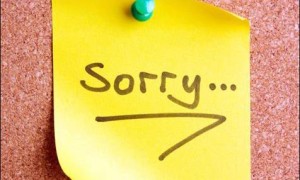今天 Susan 跟 Kate 下班經過超市,Susan 突然想起昨天洗澡的時候洗髮精用完了,所以 Kate 陪著她走進超市準備採買所有需要的日用品。
Susan: Kate, I need to go to the supermarket because I just remembered that I ran out of my shampoo last night.
Susan: Kate,我突然想起我昨天洗髮精剛好用完,我要去一下超市。
Kate: Sure. Let’s go to the supermarket together.
Kate: 好啊!那我們一起去吧!
Susan: Do you know where they put the shampoo? I’m really not familiar with this supermarket.
Susan: 你知道他們的洗髮精放在哪裡嗎?我對這間超市超不熟的。
Kate: Hmmm…I’m not sure either. Let’s just ask the cashier.
Kate: 嗯…我也不確定欸,問問看店員好了。
Susan: Okay. Excuse me, I’m looking for shampoo. Where can I find it?
Susan: 好啊,不好意思,請問洗髮精放在哪裡?
Cashier: Well, it is in the body and beauty section, down that aisle.
店員: 在美妝美體區,在這個走道的最後。

Susan: Great. Thank you so much.
Susan: 太好了,謝謝。
Cashier: No problem.
店員: 不客氣。
run out of (phr.) 用完
這個片語非常實用,我們通常都是用完東西才會去超市補貨,而「用完」的英文就是 run out of,後面直接接用完的東西。注意 run 的動詞三態為 run-ran-run。
Oh my god! I ran out of my foundation, I can’t do my makeup today! How can I go out?
我的天啊!我的粉底液用完了,我今天不能化妝!我要怎麼出門?
Where can I find…? 我在哪裡可以找到…?
去超市難免都有找不到東西的時候,這時候我們就可以用這句問店員喔!你可以先跟他說你在找什麼,再問他在哪裡可以找到,但在問話之前,可以先說 Excuse me. 來引起對方注意,舉例如下:
Excuse me. I’m looking for perfume. Where can I find it?
我在找香水,你可以告訴我我在哪裡可以找到它嗎?
section (n.) 區
超市裡商品種類很多,所以通常會依照商品屬性分區,而這裡的「區」英文可以用 section (部分) 表示。
Let’s go to the seafood section to get some fresh fish.
我們去海鮮區買一些新鮮的魚吧。
aisle (n.) 走道
超市除了分區之外,還有分走道,而通常走道會以編號區分。所以如果你聽到店員告訴你 aisle 2 的話,就代表是第二個走道。另外注意這個字的 s 不發音。
You can find the fruit section in the next aisle.
你可以在下一個走到找到水果區。
買完該買的東西後,Susan 跟 Kate 前往結帳區,準備結帳區,結果發現…
Susan: Wow! This supermarket is so advanced! They have self-checkout! Have you ever tried it before?
Susan: 哇!這間超市很先進!他們有自助結帳,你之前有用過嗎?
Kate: No, never. Do you want to try it today?
Kate: 從來沒有,你今天想試試看嗎?
Susan: Sure. Let’s do it.
Susan: 好啊,走吧!
Cashier: Hi, do you need help?
店員: 嗨,需要協助嗎?
Susan: Yes, how should I operate this?
Susan: 是,我應該如何操作這個呢?
Cashier: First, if you have a membership card, you can scan it here.
店員: 首先,如果你有會員卡,你可以先放在這裡感應。
Susan: Okay. Then, I can start to scan the barcode on all my groceries, right?
Susan: 好的,那感應完之後,我是不是就可以開始刷我要買的東西條碼?
Cashier: Yes, once you finished scanning, you can choose the type of payment, either cash or credit card.
店員: 是的,等你刷完之後,你就可以選擇付款方式,現金或是刷卡。
Susan: Cool. Thanks for your help. I think I can handle this.
Susan: 好的,謝謝你的幫忙,我想我應該會操作了。
Cashier: Anytime.
Cashier: 不客氣。
self-checkout (n.) 自助結賬
check out 為動詞片語,指的是「辦理退房手續」或是「在超市結帳離開」,合在一起 checkout 就變成其名詞,加上字首 self- (自己) 就變成了「自助結帳」。隨著時代的進步,超市現在的結帳方式已經不局限於傳統的人工結帳,還有自助結賬,而這類型的結帳方式國外也是相當普及。所以未來如果有機會在國外買東西也可以嘗試看看 self-checkout。
Self-checkout is getting more and more popular nowadays.
自助結帳近年來變得越來越普及。
membership card (n.) 會員卡
你是不是也跟小 V 一樣有各種會員卡呢?member 為名詞,「會員」的意思,加上表關係的字尾 -ship 就變成了「會員身分」,再與 card (卡片) 結合,就成了「會員卡」。
You can get a special discount if you have our membership card.
你如果有會員卡的話可以享有特別折扣。
barcode (n.) 條碼
商品上的條碼英文應該怎麼說呢?就是 barcode!而刷條碼的動詞可以用 scan,原意為「掃描、感應」。
Where is the barcode on this item? I couldn’t find it.
這件商品的條碼在哪裡?我找不到。
看完這篇是不是就覺得去超市買東西不用害怕了呢?
不管是找東西或是結帳你都可以一網打盡囉!







